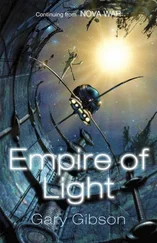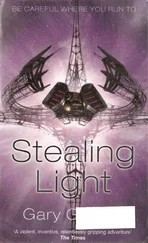It was a couple of days until I met up with her in some plaza or other. There was a man with her almost terribly.
“Maybe you should go take in the town for just a bit,” she said to him. He dropped back, the way people commonly did around her.
Her bare arms swung boldenly as we walked to some kind of bistro. A utopian diet had limited her to rigorisms of tofu, but I ate a smattering of bacon and toast. I could tell she was stirring words inside of herself, and then she and I talked over each other about what we had coming to us, every tit for tat of it, reparations conceivably computable. Her gut had always told me everything: that there are many kinds of love, but ours had never been one of them. Need I have reminded myself, then, of the times I had moved around on her, drudged from an underarm to the rear of a knee, but always stopped short of anything that would put me across as someone connubially constituted for a woman so beautied to the point where you had to wonder whether she had ever been beautiful at all? The marriage had been no time to start.
Her face, scarcely tended to with a scamble of blush, had assimilated some heavily haphazard eyeglasses. (The frames, new to me, looked as if hewn from rock.) But she struck me as not uncomely, if a trifle overhauled, her hair supplemented now, her dress an affluence of daylight-blue tugged over breasts looking newly punched up.
My own body — dare I drag the thing in here? — had been exacted baggily over an inner nature unrooted-for and undelighting. I couldn’t break free from any of this body’s leakages or procedures.
But her eyes, as ever, went vagrant when she talked. Her life was better now, she said. People went easier on her. Even the ones who had it in for her had to hand it to her that she was good at what she was doing, even (I gathered) if all she was doing was gauding about coolly in falsehoods extraordinaire.
“What about you?” she said. “What are the love interests? Let’s hear of their displeasing miseries one by one.”
I said that people tended to get dislocated when I touched them too much. I stretched things too far.
“Nonsense,” she said. “You don’t put yourself out there at all.”
I took out my wallet and showed her a photo of a woman who had long ago taken refuge in a haven of a sweater many sizes too immense. She looked hardly even noticeable in the picture. But in point of fact she was a skin-and-bones difficulty with arrhythmic outages of affection and a butchery of blue-black hair. She had tapped me, variously, pandemoniacally, for kindliness and money, but then started offering us, as a couple, to others. In no time, people, bamboozlers themselves, had gone through us just to get through with us.
“Who left whom,” my ex-wife said — as a reminder, though, and not as a question.
Wine she wanted now. The afternoon had issued itself quarter-hour by quarter-hour into buggy evening, a drizzle-drozzle so soon on the windows.
She was claiming to be pregnant in some desultory way or another. She said she had been having a devil of a time with it. She asked me to ask the waiter if he knew of any old hand at abortion. The waiter had that look of contented demolishment you often see over there. He wore a skirty apron and narrowy shoes, slippers almost, and spoke to us as if straight from his private life. He led us to the front of the place and pointed across the way to an arcade of sorts.
We held hands in a pedal-taxi on the little passage over. I felt derisions of warmth in her palm.
The abortioner’s office was at the back of a machine shop and was full of swatters, plumb bobs, toilet plungers. This was a staminal man with dinky eyes and fingers that kept niggling at each other as he spoke. On an ironing board behind him: a midget computer, bluey and ablip.
“This is the wife-in-chief?” he said.
A funny way to put it, because I figured we had always been equals in whatever was most petty or fruitless at the moment. But you had to factor in her tendencies to entice and deprive.
“I am in want of an opinion,” she said.
“Remove all wraps, trimmings, fixings,” he said to her.
“No reason for you to leave,” he said to me.
“I never left,” I said.
“I meant now,” he said.
She unbuttoned, unzipped. I had forgotten, I suppose, the finely hirsute earthliness of her, that vicious uneternal splendency. (The skelter of moles along the small of her back, the salmon-patch birthmark on the nape of her neck, the bubbly something near the groin — that droll, brazen sincerity of her body had always been a sticking point.)
He reached for a whisklike thing, then something along the lines of an awl. Proddled and poked into her a little. Then, after a clinical minute or so, said to her: “Somebody has been pulling your leg. You’re not up to anything at all in there.”
He pointed unclemently to me.
“Maybe it’s him it’s inside,” he said. “Maybe I should be scraping around in your man there.”
“He’s not my man,” she said.
“How long not?”
“Over a year now. Closer to two,” she said. “I’m with somebody else.”
“It takes a lot longer in a man, though. It goes unclocked.”
Then: “But just look how crammed the guy looks. Look how chockablock that gut.”
“We were against having kids,” she said.
“This won’t be a kid,” he said.
And to me: “Desert what you’re wearing.”
I did as I was told. Stripped — or, rather, felt things tearing, being torn, away from me. If it’s hard to say, it’s because of my hands, the way each of them had always been contrary to the nature of the other.
“Your heart is jerking,” he said.
All I knew was that I was naked, skeptical, ill-spun, beastly, muddlesome, shame-burnt, dashed and thankless, disheveled in every sinew. (I had always preferred my body sight unseen.)
It was a plastic hanger, not one of the wire ones, he finally came at me with. He hooked the thing into my behind and pulled and pulled educatedly until he let out a peep that just as soon structured itself downward an octave or two until it was harrumph after harrumph of chronic expertise.
“You keep yourself awfully stocked,” he said.
He exchanged the hanger for a shower-curtain rod.
Ripped into me again.
Fetched out, and set down on the plane of the ironing board, the expectable barrettes, compacts, lipsticks, and atomizers, but also:
the serpentinous leathern strap of a shoulder bag (clips included);
pages wrung from a scratch pad with what must have been phone numbers scribbled over until they were gibberished into inconsultable, unconsolatory faces blurrily girly;
airline-boarding-pass envelopes, stuffed with an overkill of nervily plucked coils of bikini-line hair;
receipts for shoes of synthetic materials only, for fair-trade coffee beans, the receipts a little smeary, as if having blotted the oils from the tip of a much finer nose;
a head-shot photo, scissored from a magazine, of some sacked sit-com actress, taken to salons as a prompt for the stylist to age her just so (bangs, featherings, tints);
a ropy noose of a necklace in full, but just smashments of chokers, lockets, bangly teakwood—
“That’s it?” the man said. He stepped back, the better to hurl the curtain rod at me. “That’s the most trouble you’ve gone to?”
He called me a man of pronenesses instead of convictions, screamed things even more coring, threatened my life, walked me out to the tram to see me off, etc.
I forget if she was still with me then or not.
This isn’t all of it, obviously, just some notes I must have taken not much later, overstepping. I had never been the type of man that women reassessed. I do know that in days to come I heard that she and the man had gotten themselves thrown out of her aunt and uncle’s, or whomever’s, and were living in a bed-and-breakfast in the same ruin-heaped city, and I liked to think that they were going to have to feel it in their bones just as I had always felt it in hers — that lingering business, I figured, about fitting new people and their irritable parts to the old feelings, the feelings that only made you feel as if you were going to have to get permission to chalk any of it entirely up to her.
Читать дальше












